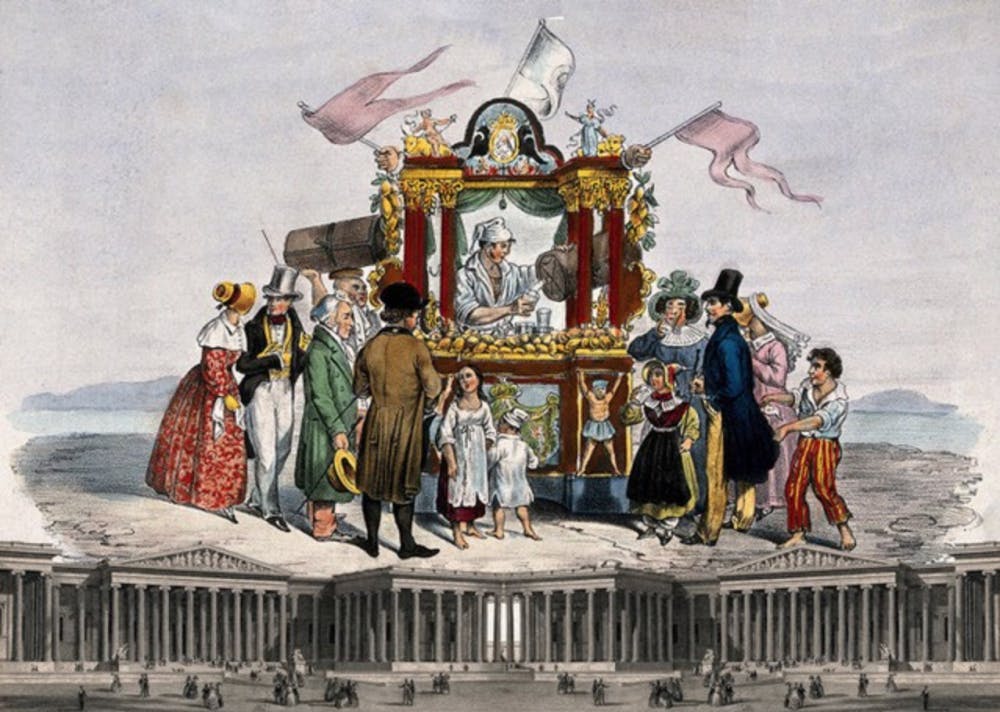In October, as part of a wider movement among museums to address overlooked or unexamined historical narratives and decolonize their exhibits, the Henry Sheldon Museum will launch its monthly virtual lecture series titled “The Elephant in the Room.” The talks, which are funded by the grant-making body called the Vermont Humanities Council, will be delivered by a group of scholars and curators who are familiar with the untold stories behind the museum’s objects.
The museum’s objective of bringing suppressed historical narratives to the surface is particularly personal because of the relatively egalitarian goals of its founder, Henry Sheldon. The year 2021 marks his 200th birthday, an event that has prompted reflection on the museum’s current goals.
“Sheldon had an interesting position in terms of privilege and class inside museums: he was a collector in the 19th century … but he didn’t have the wealth of the Rockefellers or the Fricks,” Taylor Rossini ’20, a collections associate and grant writer at the museum who contributed to pitching and developing this series, said.
To combat his “outsider” status and the financial constraints that he faced, Sheldon turned his attention to more quotidian artifacts. Rather than importing ceramics from Europe, for example, Sheldon would collect everything around him, including mundane things that others didn’t think were worth saving, like local newspapers or ticket stubs.
Because of Henry Sheldon’s disposition, the museum he founded now has a nearly encyclopedic collection of Middlebury and the surrounding areas in the 19th century.
“This year, we’ve been thinking about how our museum plays into this larger conversation about how museums are these elite cultures, these repositories of incredibly valuable objects, and how our museum doesn’t fit into that mold,” Rossini said. “That’s not something that’s been made very clear.”
Still, despite the museum’s history of preserving artifacts of everyday life, it is still subject to the challenges of bias and prejudice that many museums are grappling with today. “The Elephant in the Room” is an attempt to push that acknowledgment of the gaps in the Sheldon’s collection further. The January talk, for example, will address representation in 19th-century photography. Photographs of people of color in the museum’s collection have previously been left unlabeled, without much investigation into the identities of the individuals depicted in them.
Rossini acknowledged that this is a sign of Sheldon’s own prejudices.
“As egalitarian as we like to make Henry out to be, he was not interested in the stories of non- white, non-Christian contemporaries of his,” Rossini said. “So, we do have big holes in our collection where we have objects that give us a touchstone to tell these stories, but we don’t have information surrounding them to craft these stories.”
The main goal of “The Elephant in the Room” series will then be to address and acquire new approaches to understanding these objects that have gone uncontextualized, as the Sheldon works to decolonize its collections and push conversations on race, gender, class, intersectionality and equity forward.
“We’re hoping that these talks will give us some ideas, inspiration and hopefully, some new approaches that we can apply to our collection,” Rossini said.
The values at the forefront of the “Elephant in the Room” series are ideas growing in importance at museums across America. Museums are working to create meaningful content for the 21st century that serves the people who visit rather than the objects displayed.
“I think the goal with museums and among museum professionals is to stray as far as we can from this idea of museums being the ivory tower on the hill,” Rossini said.
Though this movement is spreading worldwide, its impact is also visible in another museum close to home. Works in the Middlebury College Museum of Art were recently reorganized to reflect thematic arrangement rather than region- or chronology-based design.
Rossini wrote and pitched the grant for the Sheldon Museum series alongside Eva Garcelon-Hart, a research center archivist at the Sheldon and the originator of the series.
“For the last few years many museums, archives and other cultural heritage institutions have been questioning their collecting and curatorial practices in response to social pressures that call and demand broader inclusion, diversity and equity,” Garcelon-Hart wrote in an email to The Campus. “When I was working on exhibits and programming to commemorate [Sheldon’s 200th birthday], I realized that it may be a perfect opportunity to reflect on our current practices to meet the needs and expectations of our increasingly diverse communities.”
After the pandemic hit, all of the museum’s exhibits were adapted to online formats, including webpages featuring photographs and video content. Rossini acknowledged that the switch made it more difficult for the museum’s core audience — namely, older townspeople — to access museum content.
Still, she remains optimistic about transitioning to offering some museum content online for the foreseeable future.
“A challenge has always been to broaden our audience as much as possible, and moving online did help with that. Younger folks, younger families, who are more comfortable with virtual content made their way to us and have stuck with us now, either through visitation or becoming members, even as we’ve reopened,” Rossini said.
As of July 2021, the museum has reopened for visitation, but because the series — as part of its design to involve as many people in the conversation as possible — convenes speakers from many different locations, the talks will all be held online.
The first lecture in the series, “Living with Death,” is about how to create meaning in a time of loss. The lecture will be on Wednesday, Oct. 6, at 7 p.m., and is open to all. It will be a conversation between the artist and writer Dario Robleto, and Assistant Professor of American Studies Ellery Foutch from the college. More information can be found at www.henrysheldonmusum.org/events.

Becca Amen '22 is the Senior Local Editor.
She previously served as a Local editor, a staff writer and a copy editor.
Amen is a joint major in English and American Literatures and Philosophy.
During the summer of 2021, she interned at New England Review, where she recorded and produced an episode of their literary podcast. Her past stories include coverage on Ruth Hardy's run for Vermont State Senator and a report on the town of Middlebury's 2019 climate strike.
In addition to her work at The Campus, Amen hosts a radio show on WRMC, Middlebury's college radio, and serves as an editor for Middlebury's Blackbird art and literary journal.

Julia Pepper '24 (she/her) is the Senior Local Editor.
She previously served as a Local Editor. She is a Psychology major and French minor. This past spring she studied in Paris. She spent the summer interning at home in New York City, putting her journalistic cold calling skills to use at her internship doing outreach with senior citizens. In her free time she enjoys reading and petting cats.




